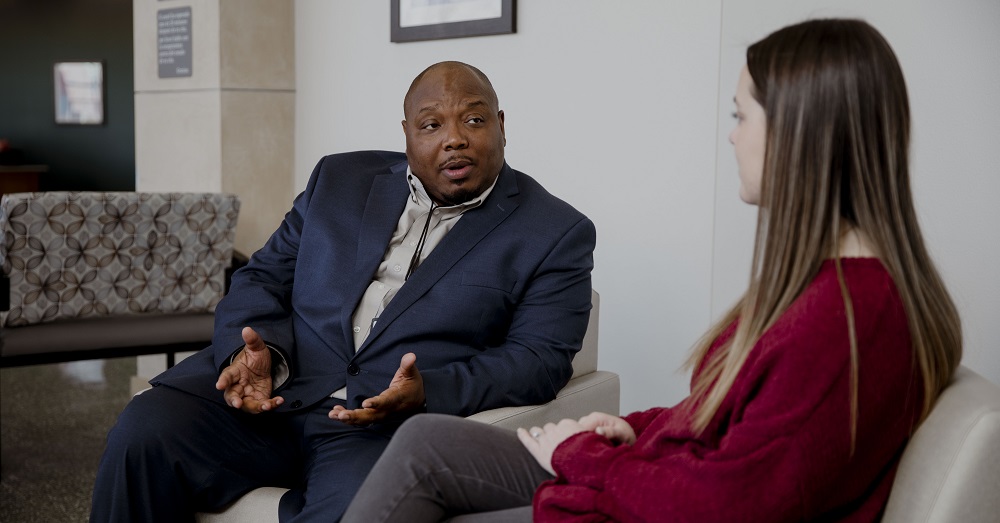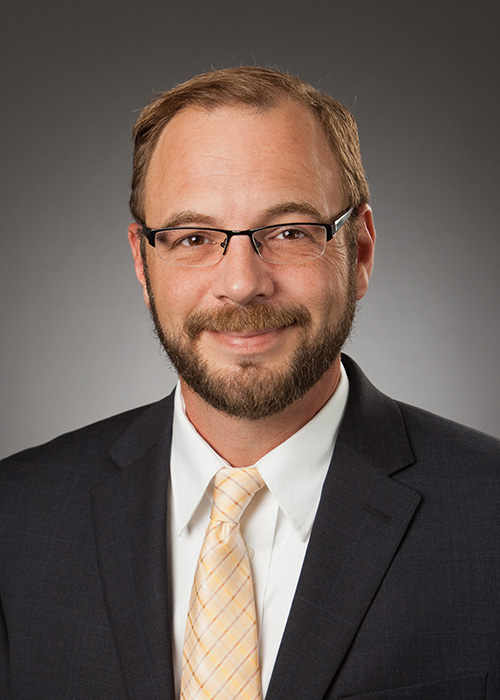Adolescents and Substance Use Disorders
TTUHSC is training substance abuse counseling to help treat and prevent substance abuse in adolescents.

Substance abuse counseling can help struggling adolescents
Adolescent substance abuse is a concern around the world. Young people often experiment with drugs and alcohol during their teenage years, and while some may use them without any significant harm, others can develop serious addiction problems with long-lasting and devastating consequences.
We spoke with Zach Sneed, Ph.D., about the effects of substance abuse on adolescents and their families, and how substance abuse counseling can help.
Sneed is an Assistant Professor and Director of the Master of Science in Addiction Counseling program of the TTUHSC School of Health Professions.
The Challenges of Adolescence on Substance Use

Zach Sneed, Ph.D.
“Basically, an adolescent is a young person in the process of developing from a child into an adult,” Sneed begins.
Adolescence is a period of significant physical, emotional and social changes. It can be a time of intense peer pressure and a desire to fit in, which can make adolescents vulnerable to experimentation with drugs and alcohol.
Additionally, many teens experience stress, anxiety and low self-esteem as they navigate the challenges of school, relationships and identity development. Substance use may seem like an easy way to cope with these challenges, providing a temporary escape from negative feelings and offering a sense of belonging. However, the consequences of substance use and abuse can be severe, including addiction, impaired brain development, and increased risk of accidents, injuries and health problems.
Furthermore, an adolescent’s brain and body are still developing, which can lead to greater consequences of substance abuse.
“If you think about how tall the average 12-year-old or 15-year-old is compared to an average 30-year-old, they have less body mass,” Sneed says. “So what that means is that substances can have a disproportionate effect on their body. Two people taking the same amount of the substance can have a really different experience with it based on body mass.”
Treating Adolescents with Substance Use Disorders
Counselors play a crucial role in helping adolescents with substance abuse. They work to establish a safe and non-judgmental environment where young people can explore their feelings and behaviors, learn coping skills and develop a plan for recovery.
“Oftentimes, adolescents are being coerced into treatment in some way,” Sneed says. “There’s some sort of behavioral event that’s happened and created the push for treatment.”
Counselors use a range of evidence-based approaches, including motivational interviewing, cognitive-behavioral therapy and family therapy to address the complex physical, emotional and social factors that contribute to substance abuse.
“One of the things that we try to do most is to work on motivation,” Sneed explains. The goal is to teach adolescent patients about what particular substances are doing to their minds and body and what the consequences are. “We also try to gauge and understand their motivation to change,” he adds. “As a counselor, I’m not a substitute parent and I know what the parent has already said.”
Through therapy, adolescents can gain insight into the reasons behind their drug use, develop new coping strategies, and learn to make healthy decisions that support their recovery. In addition, counselors work with parents and caregivers to provide support and guidance as they navigate the challenges of having a child dealing with substance abuse. By offering a holistic and collaborative approach, counselors can help adolescents and their families overcome the challenges of substance abuse and move toward a healthier, more fulfilling life.
The Importance of Communication with Adolescents About Substance Use
Communication is a critical component of preventing adolescent substance abuse. Parents, caregivers, educators and healthcare professionals play a vital role in educating young people about the risks and consequences of drug use.
“I have found that many adolescents don’t have good information about drugs or alcohol, or they’ve learned from someone in their family what drug and alcohol use looks like,” Sneed says. “They haven’t connected all the dots to the way that it may be in reality.”
By providing accurate and honest information, parents and caregivers can help teens make informed decisions about their health and well-being. In addition, open and non-judgmental communication can help young people feel heard and understood, reducing the likelihood that they will turn to drugs or alcohol as a coping mechanism.
“Society treats it [substance use] as sort of a special topic, that it's really private and very personal,” Sneed points out. “ But it's not. It's just a thing that commonly occurs as part of the developmental process.”
Communication plays a crucial role in identifying and addressing substance abuse in its early stages. Parents and caregivers who stay engaged and connected with their teens can better recognize warning signs of substance abuse and seek help before the problem becomes more severe. Ultimately, communication can foster healthy relationships and create a supportive environment that promotes positive behaviors and choices, reducing the risk of substance abuse among adolescents.
If you feel called to work with adolescents who could be battling substance use disorders, consider the Master of Science in Addiction Counseling program of the TTUHSC School of Health Professions.
Related Stories
The John Wayne Cancer Foundation Surgical Oncology Fellowship Program at Texas Tech University Health Sciences Center Announced
TTUHSC is collaborating with the John Wayne Cancer Foundation and has established the Big Cure Endowment, which supports the university’s efforts to reduce cancer incidence and increase survivability of people in rural and underserved areas.
Making Mental Health a Priority in the New Year
Sarah Mallard Wakefield, M.D., a psychiatrist with Texas Tech Physicians, talks about strategies to combat widespread and growing anxiety.
TTUHSC Dean to be Inducted into the National Academies of Practice as Distinguished Fellow
Gerard E. Carrino, Ph.D., MPH, dean of the TTUHSC Julia Jones Matthews School of Population and Public Health, will be inducted into the National Academies of Practice (NAP) as a Distinguished Fellow of the Public Health Academy.
Recent Stories
National Academy of Inventors Names TTUHSC Faculty Senior Members
The National Academy of Inventors (NAI) has designated two current and one former TTUHSC faculty researchers as Senior Members.
The John Wayne Cancer Foundation Surgical Oncology Fellowship Program at Texas Tech University Health Sciences Center Announced
TTUHSC is collaborating with the John Wayne Cancer Foundation and has established the Big Cure Endowment, which supports the university’s efforts to reduce cancer incidence and increase survivability of people in rural and underserved areas.
TTUHSC Receives $1 Million Gift from Amarillo National Bank to Expand and Enhance Pediatric Care in the Panhandle
TTUHSC School of Medicine leaders accepted a $1 million philanthropic gift from Amarillo National Bank on Tuesday (Feb. 10), marking a transformational investment in pediatric care for the Texas Panhandle.
